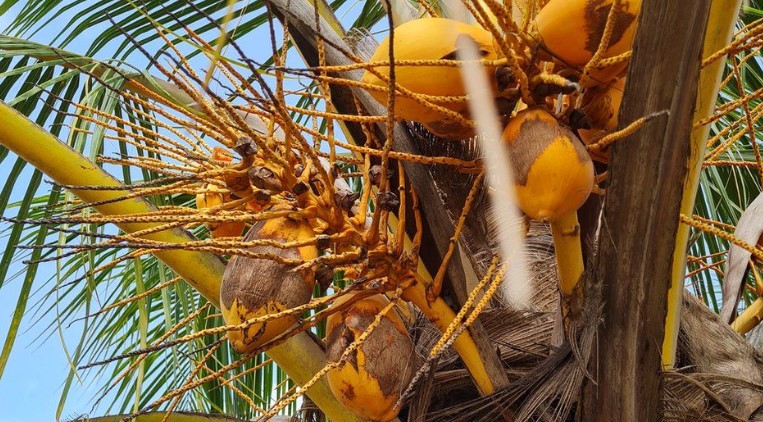Most of Nigeria has the perfect climate for growing coconuts and yet it imports 70% of the popular fruit, which is widely used as a snack, a drink and to make everything from oil to cosmetics. With demand for coconuts increasing both domestically and around the world, plans are now afoot to make Nigeria self-sufficient in coconuts.
In the neighbourhood of Isolo in the heart of Nigeria’s commercial hub Lagos, Toyin Kappo-Kolawole runs a small factory processing coconuts into milk, water, flour and snacks.
She started her business, De-Cribbs Cocogry Coconut, in 2018, sourcing the coconuts from the coastal town of Badagry, the centre of the country’s coconut industry.
As production expanded, she struggled to find enough coconuts in Nigeria and had to import the fruit from Ghana.
“It makes my product expensive. That means I’m losing customers,” she says.
Ms Kappo-Kolawole is among a growing number of entrepreneurs who have been attracted to the industry.
Everything from the husk to the flesh can be processed into a wide range of products – food, beverages, cosmetics, textiles, charcoal and even soil and energy.
Global demand for coconut-based products has risen steadily since the early 2000s.
As a result, Nigeria has seen a surge in processors entering the industry, keen to take advantage of its vast opportunities.
Demand for products remains stable even during difficult economic periods. This meant that when global supply was low in 2021, the average price of coconut oil soared by 62%, reaching $1,636 (£1,370) per tonne.
Last month Nigeria launched a coconut planting initiative in Badagry as part of a drive to promote the fruit as a cash crop.
It’s part of a wider plan led by the National Coconut Producers, Processors and Marketers Association of Nigeria (Nacoppman) to help the country become self-sufficient.
Source: bbc




